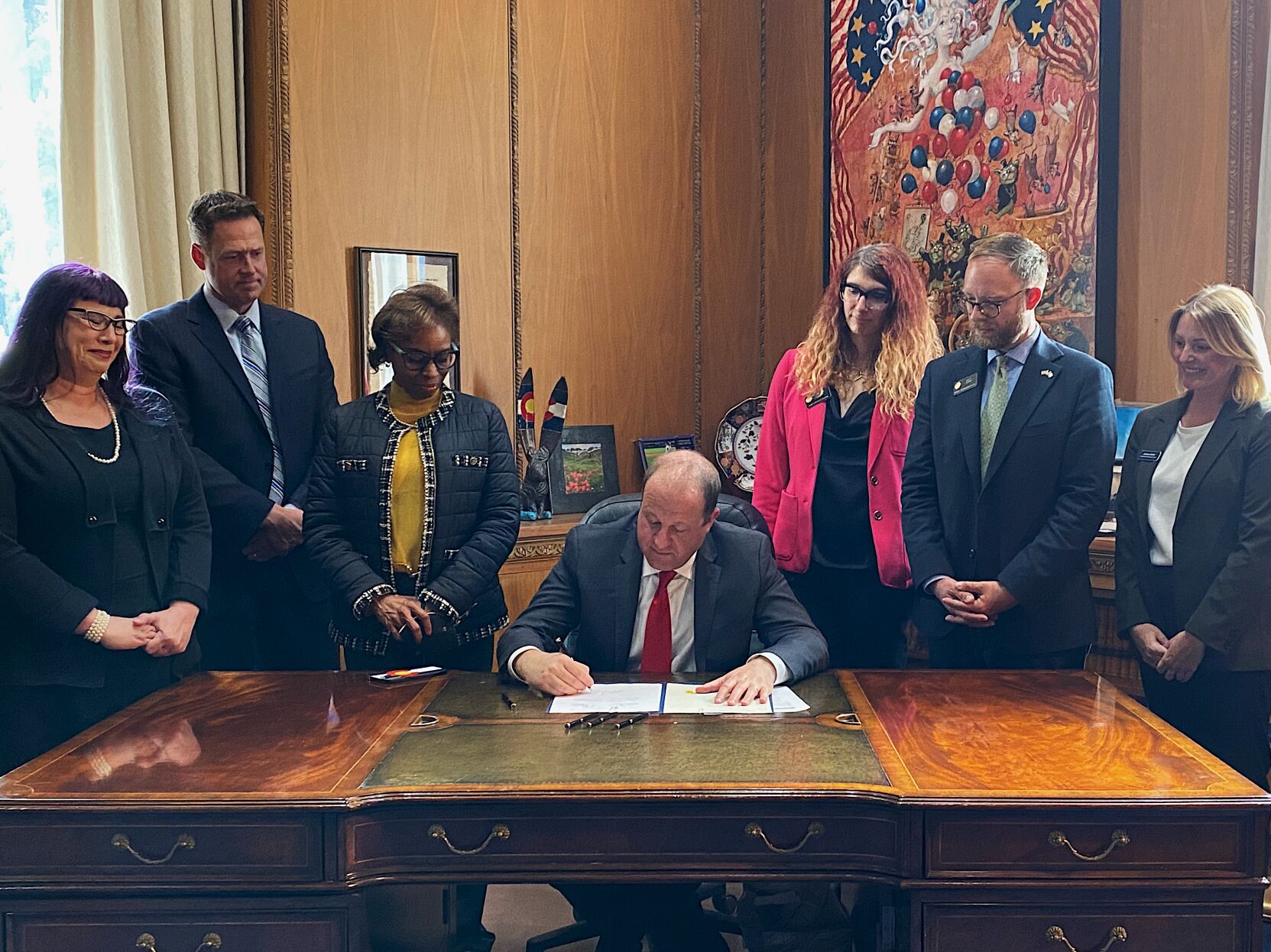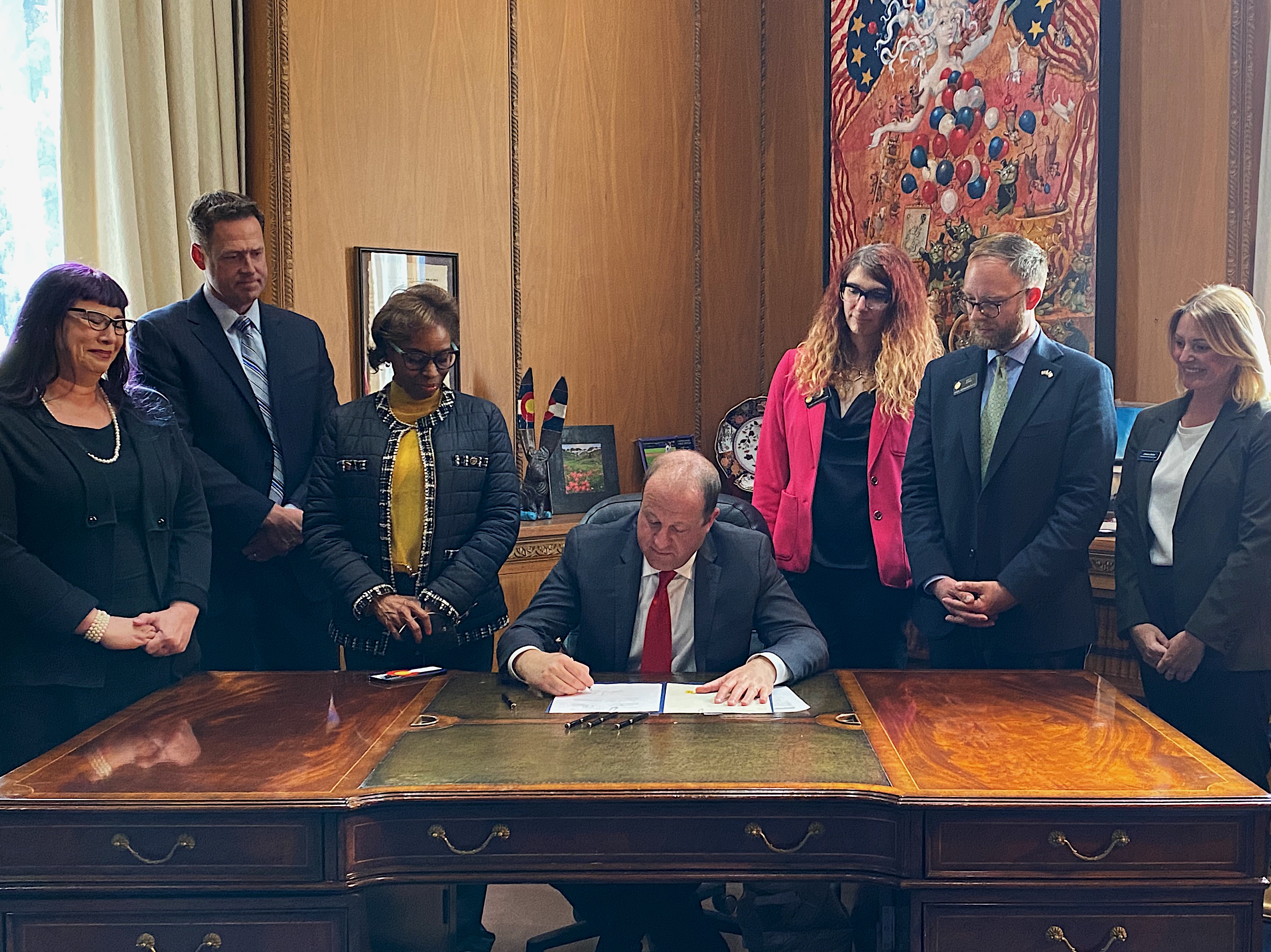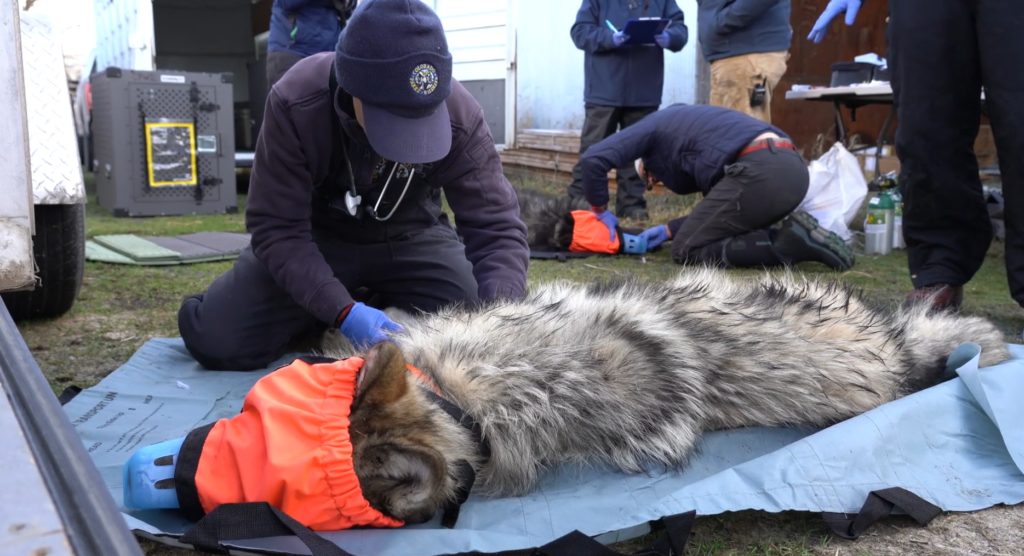Polis signs bills to protect sex workers from violence, keep people with mental health issues out of jail

Gov. Jared Polis signed two bills Monday that aim to protect sex workers from violent crime and prevent people with mental health issues from entering the criminal justice system.
Effective immediately, House Bill 1288 allows sex workers to report violent crimes without fear of being arrested by granting victims and witnesses of violent crime immunity from prostitution-related charges when reporting to police. The state House and Senate unanimously passed the measure.
“This bill, very simply, will make Colorado safer. It will encourage reporting of crime, allow criminals to be held accountable and assist with criminal investigations,” Polis said. “There’s no question that there will be crimes in our state that are successfully prosecuted because of this bill that we are making law.”
Supporters of the bill described sex workers as “easy targets” who are specifically chosen by criminals because they are less likely to go to the police. Of adult sex workers, 82% have been physically assaulted, 83% have been threatened with a weapon, 68% have been violently raped, and 84% were or are currently homeless, according to the Academic Journal of Women’s Health.
Under the bill, victims will receive immunity from prosecution-related charges when reporting crimes, including human trafficking, stalking, kidnapping, assault and murder.
“This bill is such an important thing that is overlooked,” said bill sponsor Rep. Brianna Titone, D-Arvada. “This will allow (sex workers) to be able to speak up and defend themselves in the courtroom. … This is going to help a lot of people out who don’t deserve to be targeted for what they’re doing.”
Also signed on Monday, Senate Bill 10 will expand statewide an existing pilot program that assesses individuals when they’re booked into jail for low-level offenses before any charges are filed. If a person is found to have a behavioral health disorder, they are instead placed in a local treatment program.
Approximately 43% of state prisoners and 23% of federal prisoners have a history of mental health issues, according to a 2016 survey from the U.S. Department of Justice.
“A jail cell is no place for someone with a mental health condition or substance use disorder,” said bill sponsor Sen. Pete Lee, D-Colorado Springs. “Diverting folks away from the criminal justice system and into community programs will ensure individuals in crisis are met with treatment, not punishment.”
Supporters of the bill said jails have become “de facto mental health hospitals” in Colorado, arguing the harsh and isolating environments only exacerbate mental health conditions.
The pilot program began in 2019 in four judicial districts, serving 88 people in its first year. It expanded to another five directs in 2020. The program was scheduled to expire in July, but, under the bill, it will be implemented statewide for the first time.
“This legislation helps Coloradans get the services they need,” Polis said. “This is a strongly bipartisan bill that shows the importance of rehabilitation and mental health support.”
The state House passed SB-10 in a 61-1 vote, following the Senate’s unanimous vote. Only Rep. Matt Soper, R-Delta, voted against the bipartisan bill, saying he is concerned criminals could take advantage of it to avoid punishment.














